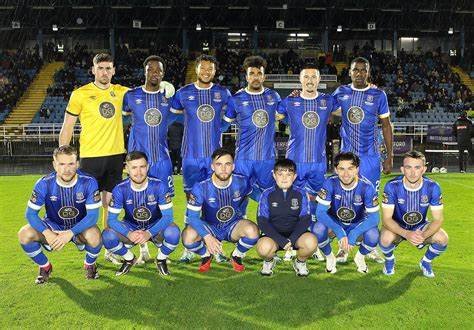The internet has revolutionized the way we consume football web pages. Gone are the days of relying solely on newspapers and television for news, scores, and analysis. Today, a vast universe of football web pages caters to every fan’s needs, from the casual observer to the die-hard enthusiast.1 This article delves into the diverse world of football web pages, exploring their key features, the impact they’ve had on the sport, and the challenges they face in the digital age.
A Digital Hub for Football Fans
Football web pages have become indispensable resources for fans worldwide. They offer a plethora of information, including:
Live Scores and Updates: Real-time updates on matches across various leagues, from the English Premier League to obscure regional divisions.2
News and Articles: In-depth analysis, match reports, transfer news, player profiles, and expert commentary from renowned journalists and pundits.
Statistics and Data: Comprehensive statistics on players, teams, and leagues, including goals scored, assists, clean sheets, and head-to-head records.3
Video Highlights and Full Matches: Access to match highlights, full-game replays, and exclusive interviews with players and managers.
Interactive Features: Live chat forums, polls, and prediction games that allow fans to engage with each other and share their passion for the sport.
Team and League-Specific Pages: Dedicated pages for individual teams and leagues, providing detailed information on fixtures, results, squads, and news.
Key Players in the Football Web Page Landscape
Official Club Websites: Each club maintains its own official website, offering exclusive content, news, and access to ticketing and merchandise.
Major Sports News Outlets: Renowned sports publications like ESPN, BBC Sport, and Sky Sports have robust online platforms with extensive football coverage.

Dedicated Football Websites: Websites like Goal.com, Bleacher Report, and 90 min specialize in football news, providing comprehensive coverage of leagues, teams, and players.
Fantasy Football Platforms: Sites like Fantasy Premier League and ESPN Fantasy Football offer interactive games that allow fans to assemble virtual teams and compete with friends.
Social Media Platforms: Platforms like Twitter, Facebook, and Instagram have become integral to the football experience, with clubs, players, and fans sharing news, updates, and engaging in real-time discussions.
The Impact of Football Web Pages
Football web pages have had a profound impact on the sport, transforming the way fans consume and engage with the game:
Increased Accessibility: Fans can now access information and follow matches from anywhere in the world, regardless of their location.
Enhanced Fan Engagement: Interactive features, live chat forums, and social media platforms have fostered a sense of community among fans.
Data-Driven Analysis: The availability of extensive data has revolutionized football analysis, enabling deeper insights into player performance and team tactics.
Breaking News and Instant Updates: Fans can receive real-time news and updates, staying informed about the latest developments in the football world.14
Global Reach: Football web pages have contributed to the globalization of the sport, connecting fans from different cultures and backgrounds.
Challenges and the Future of Football Web Pages
Despite their numerous benefits, football web pages also face challenges:
The Rise of Paid Content: Increasingly, premium content is being locked behind paywalls, limiting access for some fans.
Combating Misinformation: The spread of misinformation and fake news remains a concern, requiring critical evaluation of online sources.
Data Privacy and Security: Protecting user data and ensuring online safety are crucial considerations for website owners.
Staying Ahead of the Curve: The rapidly evolving digital landscape requires constant innovation and adaptation to remain competitive.
The future of football web pages lies in embracing new technologies and innovative approaches. We can expect to see further integration of artificial intelligence, augmented reality, and virtual reality experiences. The focus will likely shift towards personalized content, interactive storytelling, and immersive fan experiences.
Tips for Navigating the World of Football Web Pages
Identify Reliable Sources: Stick to reputable news sources and official club websites to ensure the accuracy of information.
Be Critical of Information: Always verify information from multiple sources before accepting it as fact.
Utilize Search Engines Effectively: Use specific keywords and filters to find the information you’re looking for.
Explore Different Platforms: Experiment with various websites and social media platforms to discover new perspectives and content.
Engage with the Community: Participate in online forums and discussions, but always maintain respectful and constructive communication.
The Influence of Social Media
Real-time Interaction: Social media platforms have become extensions of football web pages, facilitating real-time interaction between fans, players, and clubs.
Breaking News and Viral Content: Social media plays a crucial role in disseminating breaking news, viral moments, and fan-generated content, shaping the narrative around football events.
Community Building: Social media platforms foster a sense of community among fans, allowing them to connect with like-minded individuals and engage in discussions about their favorite teams and players.
Final Thoughts
Football web pages have become an integral part of the modern football experience. They provide fans with unprecedented access to information, enhance engagement, and contribute to the global reach of the sport. By navigating the digital landscape wisely and critically evaluating online content, fans can enjoy a richer and more informed football experience.
FAQs
How do social media platforms influence the consumption of football content on web pages?
Social media platforms significantly influence how fans consume football content. They are crucial for disseminating breaking news, live match updates, and viral moments, often faster than traditional news outlets. Platforms like Facebook and Instagram allow fans to connect with each other, share their passion for the sport, engage in discussions, and form online communities. Players and clubs actively utilize social media to connect with fans, share behind-the-scenes content, and build their brands. Social media also plays a crucial role in the creation and spread of football-related memes, trends, and viral content, shaping the cultural conversation around the sport.
What are some specific examples of how VR and AR could enhance the football experience on web pages?
VR and AR technologies have the potential to revolutionize the football experience on web pages. VR can offer immersive 360-degree replays of goals and key moments, allowing fans to watch a match from a player’s perspective. It can also create the experience of attending a live game from the comfort of your home with realistic sound effects and crowd noise. AR can enhance training and analysis by overlaying data and visualizations on live footage, providing interactive training simulations, and offering personalized feedback to players.
What are the ethical considerations related to data privacy and security in the context of football web pages?
Data privacy and security are paramount. Websites must be transparent about the data they collect from users and how it is used. Obtaining explicit user consent for data collection and usage is crucial. Robust security measures must be implemented to protect user data from unauthorized access and cyber threats. A plan to respond to potential data breaches and mitigate the impact on users is essential.
To read more, Click Here













Leave a Reply